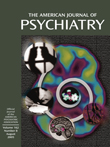Antidepressants for Bipolar Depression
To the Editor: The review of antidepressants for bipolar depression by Dr. Gijsman et al. provided an excellent overview of the randomized, controlled trials in the literature. However, the presented data all reflect acute antidepressant treatment response, with the longest study duration (10 weeks). Bipolar disorder is a chronic, relapsing condition, with an etiology likely distinct from that of unipolar depressive disorder, for which current antidepressants were specifically developed. Treatment approaches applied to alleviate symptoms during acute exacerbations may have significant impact on the long-term course of the illness. The authors did not present evidence that the long-term outcomes are favorable with antidepressant treatment; thus, their conclusion to challenge the APA practice guideline for recommending lithium or lamotrigine as first-line treatment for bipolar depression is unfounded.
There are long-term (of 11–24 months) prospective, placebo-controlled (1–3), naturalistic prospective (4, 5), and retrospective studies (6)—excluded categorically from the current review—showing that antidepressant exposure is associated with worse long-term outcomes in patients with bipolar disorder, apart from the concern for acute mania. Developing treatment guidelines requires an integration of all available data.
The question of whether bipolar depression responds best to adding a mood stabilizer or an antidepressant may be amenable to investigation by a long-term practical clinical trial. This model of structuring studies to compare relevant alternative interventions in diverse, real-life patient populations and practice settings is gaining support from research decision makers. Current data on antidepressants in bipolar depression do not justify changing the APA treatment guidelines.
1. Quitkin FM, Kane J, Rifkin A, Ramos-Lorenzi JR, Nayak DV: Prophylactic lithium carbonate with and without imipramine for bipolar I patients: a double-blind study. Arch Gen Psychiatry 1981; 38:902–907Crossref, Medline, Google Scholar
2. Kane JM, Quitkin FM, Rifkin A, Ramos-Lorenzi JR, Nayak DD, Howard A: Lithium carbonate and imipramine in the prophylaxis of unipolar and bipolar II illness: a prospective, placebo-controlled comparison. Arch Gen Psychiatry 1982; 39:1065–1069Crossref, Medline, Google Scholar
3. Prien RF, Kupfer DJ, Mansky PA, Small JG, Tuason VB, Voss CB, Johnson WE: Drug therapy in the prevention of recurrences in unipolar and bipolar affective disorders: report of the NIMH Collaborative Study Group comparing lithium carbonate, imipramine, and a lithium carbonate-imipramine combination. Arch Gen Psychiatry 1984; 41:1095–1104Crossref, Google Scholar
4. Altshuler LL, Post RM, Leverich GS, Mikalauskas K, Rosoff A, Ackerman L: Antidepressant-induced mania and cycle acceleration: a controversy revisited. Am J Psychiatry 1995; 152:1130–1138Link, Google Scholar
5. Ghaemi SN, Boiman EE, Goodwin FK: Diagnosing bipolar disorder and the effect of antidepressants: a naturalistic study. J Clin Psychiatry 2000; 61:804–808Crossref, Medline, Google Scholar
6. Ghaemi SN, Rosenquist KJ, Ko JY, Baldassano CF, Kontos NJ, Baldessarini RJ: Antidepressant treatment in bipolar versus unipolar depression. Am J Psychiatry 2004; 161:163–165Link, Google Scholar



